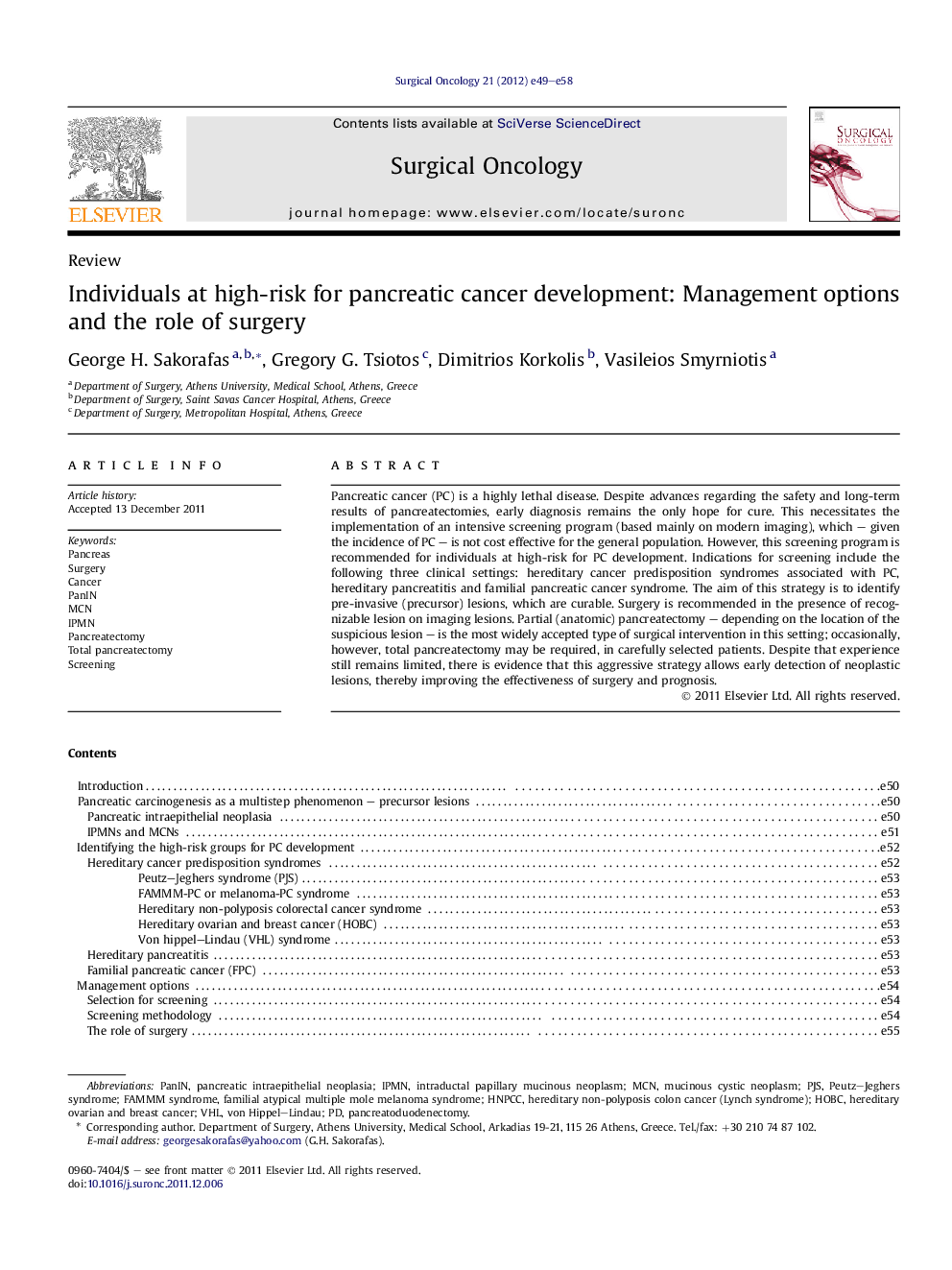| Article ID | Journal | Published Year | Pages | File Type |
|---|---|---|---|---|
| 3997924 | Surgical Oncology | 2012 | 10 Pages |
Pancreatic cancer (PC) is a highly lethal disease. Despite advances regarding the safety and long-term results of pancreatectomies, early diagnosis remains the only hope for cure. This necessitates the implementation of an intensive screening program (based mainly on modern imaging), which – given the incidence of PC – is not cost effective for the general population. However, this screening program is recommended for individuals at high-risk for PC development. Indications for screening include the following three clinical settings: hereditary cancer predisposition syndromes associated with PC, hereditary pancreatitis and familial pancreatic cancer syndrome. The aim of this strategy is to identify pre-invasive (precursor) lesions, which are curable. Surgery is recommended in the presence of recognizable lesion on imaging lesions. Partial (anatomic) pancreatectomy – depending on the location of the suspicious lesion – is the most widely accepted type of surgical intervention in this setting; occasionally, however, total pancreatectomy may be required, in carefully selected patients. Despite that experience still remains limited, there is evidence that this aggressive strategy allows early detection of neoplastic lesions, thereby improving the effectiveness of surgery and prognosis.
